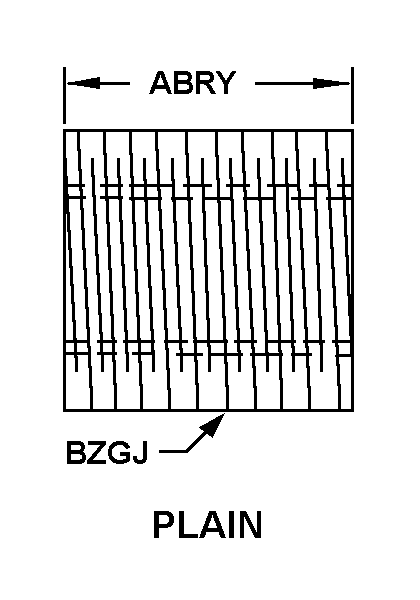5325000120310
Price Quote Get an up to date pricing and availability quote for this product. Order online or over the phone.
Quality Commitment
Serving our customers with quality and safety first.
- AS9120 Certified
- Audited supply chain
- ITAR Registered
- DDTC Registered
- HAZMAT Certified
- Customer service objectives
- Every product 100% inspected

5325-00-012-0310 Specification Set by the OEM (see RNCC code 3)
0.250in.
0.216-28 unf, modified minor dia 0.1890 in. max
steel comp 303
QQ-S-764, cond a fed spec single material response
passivate
MIL-S-5002 mil spec single treatment response
plain
Cross Reference Parts Part numbers that meet the specification outlined on this page and set by the OEM
Identification Item Identification Guide (IIG) and Item Name Code (INC)

Definition Definition of approved item name (AIN): "INSERT,SCREW THREAD"
A cylindrical item which may have wrenching and/or driving facilities and/or shoulders. It is designed to be inserted in a drilled or a pretapped hole, or molded or pressed into soft material to reduce the size of a tapped hole; to provide threads; to add strength, and/or to prevent stripping. It is one of the following: (1) a one-piece, flanged or unflanged, internally threaded item which may have external threads, and/or serrations around the periphery of the collar, designed to engage a serrated lock ring which is not included with the item; (2) a one-piece precision coiled wire; (3) a two-piece item consisting of an internally threaded cylinder and a mating externally threaded part; or (4) a one-piece internally threaded item whose outside diameter is tapered and/or knurled and/or with fin(s). The internal thread of the item may have a locking feature. Excludes items having a sleeve on its underportion which can be clinched or crimped. Excludes bushing, machine thread; nut, plain, knurled; nut, plain, round; nut, plain, clinch and nut, self-locking, clinch. See also nut, plain, plate.
5325-00-012-0310 Material Hazmat, Precious Metals, Criticality, Enviroment, and ESD
Indicates there is no data in the hmirs and the nsn is in a fsc not generally suspected of containing hazardous materials.
Precious metal content is unknown
The item does not have a nuclear hardened feature or any other critical feature such as tolerance, fit restriction or application.
Identification Codes
HMIC: Hazardous Material Indicator Code. A one position code that identifies a hazardous item.
PMIC: Precious Metal Indicator Code. A one position code which identifies items that have precious metals as part of their content. precious metals are those metals generally considered to be uncommon, highly valuable, and relatively superior in certain properties such as resistance to corrosion and electrical conductivity.
ESD: Electrostatic Discharge. Indicates if an item is susceptible to electrostatic discharge or electromagnetic interference damage. electrostatic discharge damage occurs when an accumulation of static electricity generated by the relative motion or separation of materials is released to another item by direct contact. electromagnetic interference damage occurs when an item comes into proximity with an electrostatic or magnetic field.
ENAC: Enviromental Attribute Code. Identifies items with environmentally preferred characteristics.
CRITL: Criticality Indicator Code. Indicates an item is technically critical by tolerance, fit, application, nuclear hardness properties, or other characteristics.
Material Management Material categorization and source of supply
Defense logistics agency, enterprise business systems
Material Codes
SOS: Source of Supply. A three position code or routing identifier code (ric), which identifies the source of supply activity.
SMIC: Special Material Indicator Code. A two position code, which categorizes material on the basis of requirements for source or quality control, technical design or configuration control, procurement, stocking and issue control, special receipt, inspection, testing, storage, or handling.
MMAC: Material Management Aggregation Code. A two position code that identifies an item of supply to be managed by a specific activity manager.
MCC: Material Echelon Code. A two position code employed by the marine corps in classifying items into categories by materiel category and procurement echelon. the alphanumeric management code is in the first position and identifies the materiel category
IMC: Denotes wether items shall be subjected to integrated management under the defense supply agency or retained by the individual military service or other department of defense components for their management. Assigned by th activity responsible for item management coding.






